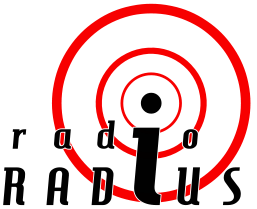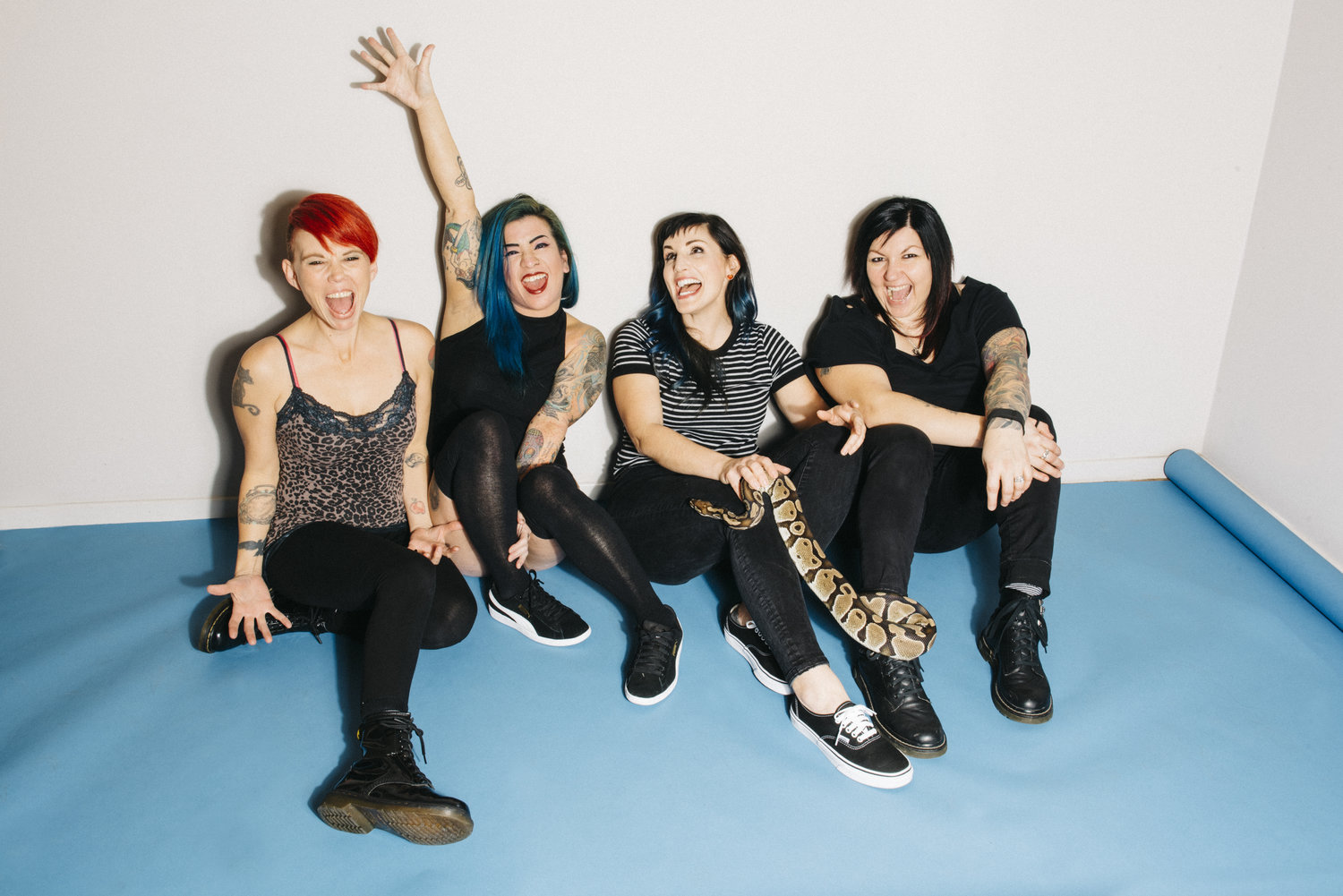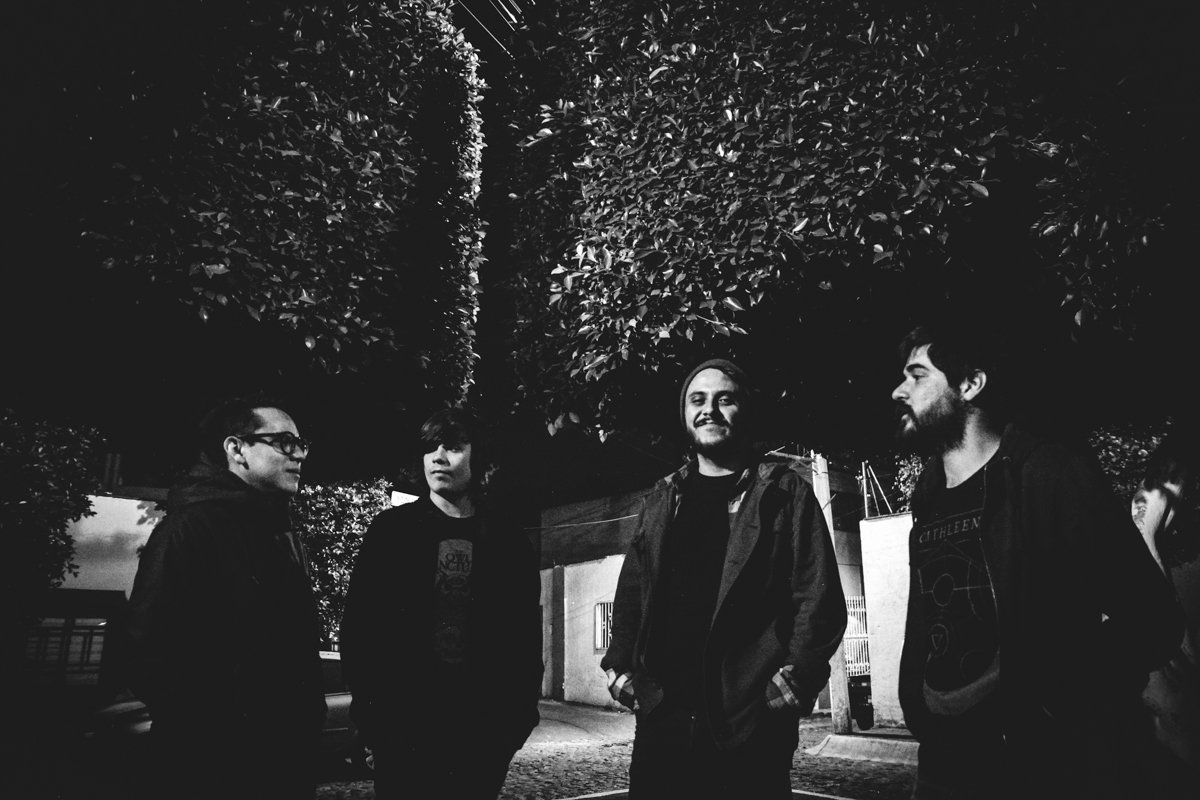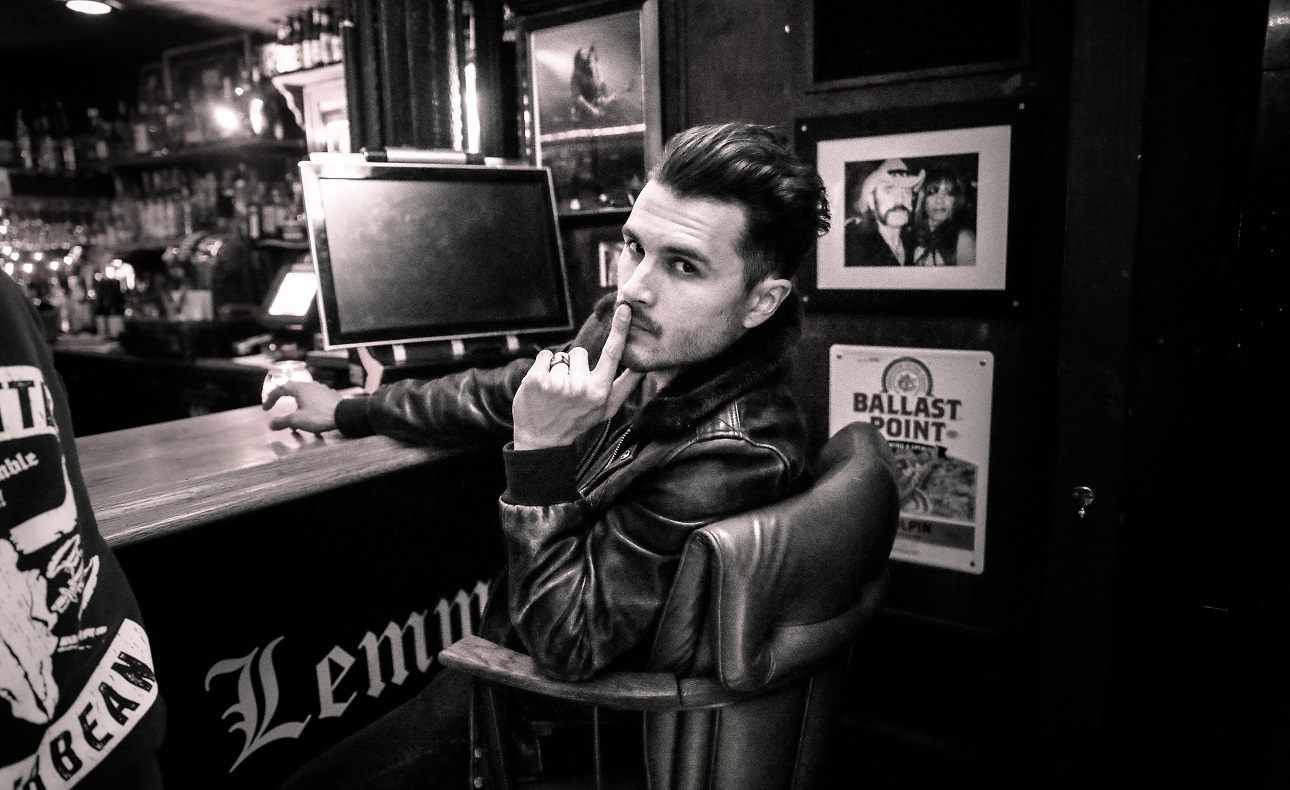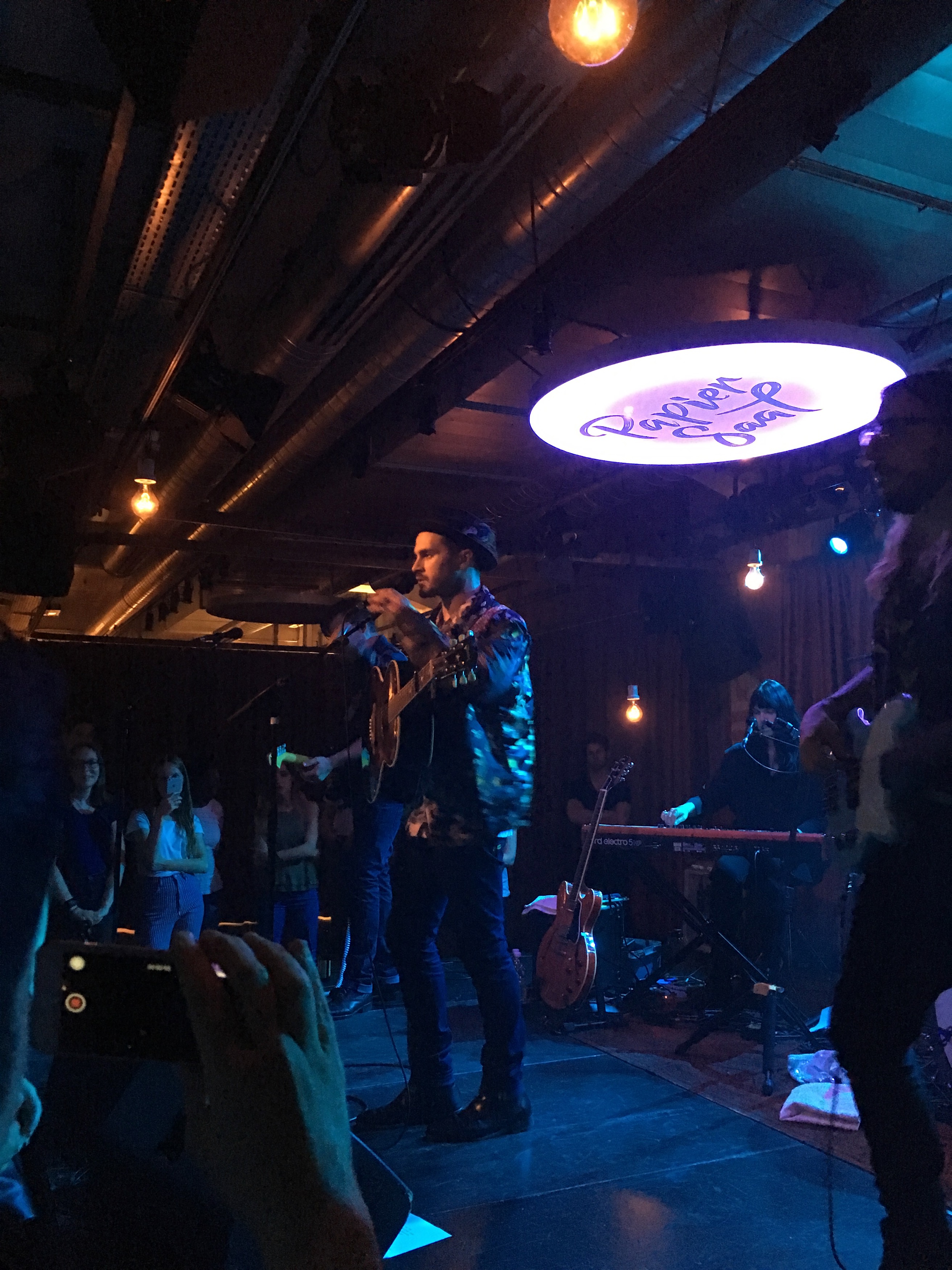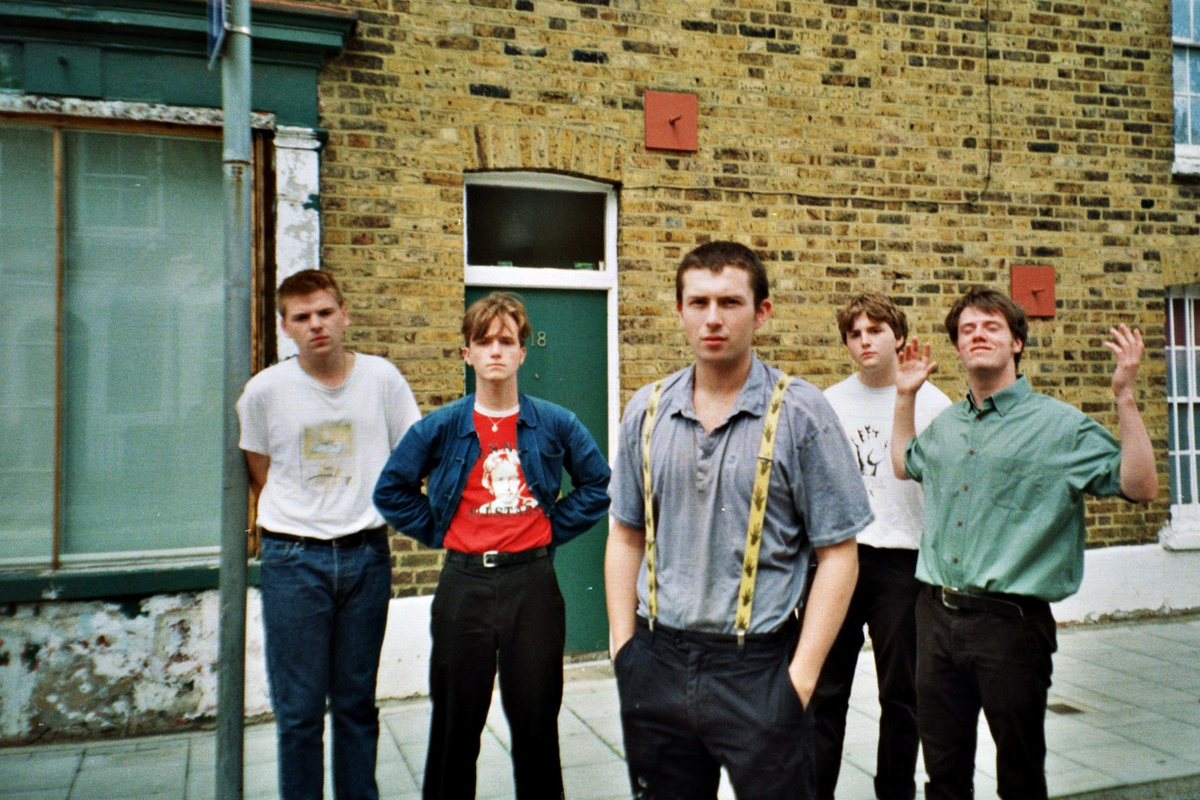Bad Cop/Bad Cop are a melodic punk band from Los Angeles, USA consisting of (f.l.t.r.) Stacey Dee (vocals/guitar), Linh Le (vocals/bass), Jennie Cotterill (vocals/guitar) and Myra Gallarza (drums). Ahead of their show with Pennywise and Mad Caddies at Dynamo Saal on June 26th, Milo Schärer of Radio Radius spoke to Jennie Cotterill about the band’s summer tour, their 2017 album Warriors and Fat Wreck Chords.
Milo Schärer: Hi, thank you so much for doing this interview with Radio Radius!
Jennie Cotterill: Thanks for having me!
How has this European tour been for you so far? I believe you’re playing some dates at Punk In Drublic Festivals as well, so how has that been?
This has been amazing! We were joking that this is the best summer ever, and it really is. Every day has been super fun and the shows have been great. We’ve been playing these big festivals with bands that we love and we grew up listening to and we get to be friends with, and we get to headline smaller shows. And it’s always this wonderful surprise when people show up, so it’s been wonderful!
What are some of the bands that you’ve played with this summer that you particularly like touring with?
The Mad Caddies are really fun, so I think they’re probably our best friends on this tour. NOFX are wonderful, we’re really good friends with them. Karina tours with them live now, and we all are obsessed with her, Karina Deniké from Dance Hall Crashers. It’s just really cool. Bad Religion, we’ve been playing these festivals with them and everybody was just too excited to talk to them for the first five or six shows, but I think we’re cracking in, we’re making friends, it’s great!
That’s cool, now let’s get to your band. For people who don’t know Bad Cop/Bad Cop yet, how would you describe your band in five words?
Positive, humanist, energetic, fun. I get one more, huh? Powerful.
You, Stacey and Linh all sing in the band. How do you split songwriting duties?
Well, when we first started, people just kind of brought stuff to band practice. Our earlier releases had a lot of songs where multiple people sang on one track, it’s kind of this fun trick when other people sing, you only have to write one verse and you bring it to your friend and say: “Do you want to write a verse?” That’s kind of how we started doing things and then on this record, on Warriors, it was a little different. We worked with our friend Davey Warsop, who’s in a great band called Sharp/Shock, I don’t know if you’ve heard them. He’s produced and recorded everything we’ve ever done, and he reached to everyone individually and asked: “Do you have any ideas? Let’s work on them.” And then once they were a little bit more formed, everyone got involved. So, it was a little more individual this album, but I think it worked out great.
Ok, let’s talk about your most recent album Warriors, which I really liked, like a lot of people, I think. It’s a lot more political than your debut album Not Sorry, so what inspired this change of lyrical direction?
Well, we were on tour around the US for two months with The Interrupters, one month before the US presidential election, and one month afterwards. It was just pretty depressing and serious, and we were supposed to come home from that and start recording. We had other songs in mind that we we’re going to do, but then everyone was just so distraught over the election that we were like: “If there’s one thing that we can do about that, it’s write music.” You know? So, we kind of rewrote everything when we got home.
What you mention is a reaction that a lot of musicians in a lot of different genres had to the US election. What do you think of punk’s response in general and how does your album Warriorsfit into that?
I think a voice of dissention is important and art has always offered that, censorship is really dangerous. One thing everyone was kind of patting themselves on the back about after the election was: “Well, there should be some pretty good music coming out of this, at least we can look forward to that.” I think it’s true, and I think with our record, we kind of lucked out because we recorded the second we got home, right after the election, so it was very in the front of our minds and was able to come out in a timely fashion, ahead of the curve. It’s not that we capitalized on it, we just really changed what we were going to do and I’m proud of what we did. My mom is really upset about the president and everything that he’s doing, so she’ll just be like: “I’m really proud of you for your album!” So, that makes me feel good.
Ok, well, let’s talk about one song that has very specific references to what is going on in US politics at the moment, Womanarchist. Why did you name-check Joan of Arc and Nancy Morgan Hart in the context of contemporary US politics?
Stacey wrote this song after years of interviews where people ask us about feminism and everyone in the band is like: “Yeah, we are feminists!” and Stacey refused to acknowledge that word as a way to describe herself because… I don’t know why. I think she didn’t understand it, and eventually in the election we kind of broke through and were like: “You are a feminist. You have been taught that’s not a good word by people that hate women.” You know what I mean? Feminism is not just for women, it’s for everybody. It’s not just to benefit women, it’s just about being fair. I think that was her breakthrough moment and that song came out of it. She would send me lyrics back and forth and be like: “Is this cool?” I don’t know, I feel like she doesn’t engage in conversations about feminism regularly and so it was like: “Can I say this? Is this offensive?”, and I was like: “No, you’re doing great, you killed it. You did a great job.” I was like: “You did some research, I’m really proud of you!” But I don’t know exactly why she chose to name-drop those women, maybe she just felt an affinity for them in her research. I’m really proud of her too, because I was so nervous. We would have these interviews where I would be like: “Stop the tape! That is not officially band representation.” Anyways, everything’s great now.
You have some other very overtly feminist songs on Warriors, such as I’m Done and Why Change a Thing. Could you tell us a bit about those songs?
Yeah, totally. Linh wrote I’m Done and that’s her. She’s very passionate and abreast of political things, and usually takes a pretty strong stance on the side of… I think she’s right. I trust her, she reads up on things and she’s just this powerful little person and I feel like that song is exactly that: it’s short, it’s powerful, it’s to the point, it’s direct, it’s Linh. You know? And then I wrote Why Change a Thing before the election, actually. I had this job where I kept getting just walked all over because it was this kind of machismo, ridiculous thing, and I just wrote that song. And it happens, unfortunately, to be relevant still, so we kept it.
Alright, I want to ask you about one more song off the album. What’s the story behind Retrograde and why did you choose it to open the album?
Well, it rips, that’s why. Stacey had a very public bottoming out and then getting clean, which is kind of part of our band history, and this was her anthem of taking her life back and I think a lot of people can identify with it because everyone makes mistakes, that’s normal, but you should come back and embrace that. I love when she says “I’m choosing to be powerful”, I was like: “It is a choice.” And also, Erin Burkett, who runs the record label, Fat Mike’s ex-wife, was like: “This is my favorite song that anybody’s ever done, this is the best thing, I’m so proud of Stacey.” So, that probably had some influence on it being track one.
Now that you bring up Fat Wreck, what has it been like for you being signed there and working with Fat Mike?
It’s been great, they’re our family. I can’t imagine us on a different label or a more appropriate label. Stacey and Mike have worked on a musical together, everybody at the office is amazing and very supportive. Mike, he’s eccentric, but he’s brilliant, and it was challenging working with him. He produced this album very intensely. Previously, we had only worked with Davey and that was intense but it was not like Mike. You know Mike…
Well, you read and hear a lot of things about Fat Mike, so that’s why I’m asking.
Yeah, I mean, he’s very intelligent and he has a lot of really great ideas and he’s also powerful and works for himself, so he just really doesn’t have a lot of patience for somebody disagreeing with him. You know what I mean? He’s confident, he should be confident, it’s deserved, but he’s a strong flavour. I like it, but it was difficult.
Alright. You said before that Fat Wreck was a very good fit for you, and I certainly agree sound-wise, you sound like a typical Fat band to certain extent. What are some bands that influenced you?
Ooh. Well, it’s kind of interesting because the four of us all have separate influences, so this is just the stew that happens when you have those different ingredients. I really like garage and I liked a lot of Fat stuff when I was a teenager, it was like the most exciting and urgent thing I’d ever heard, you know? Politics, oh my god, so exciting! I also really like girl bands and any bands with women I will go see, check out and listen to. Myra, our drummer, is very rock’n’roll, she loves AC/DC, she sees more live shows than anyone I know, usually rock’n’roll. She’s a girl band encyclopaedia too, you could ask her about any band that’s ever had women and she’s like: “Oh, I saw them.” Linh has kind of a metal background, which you can kind of hear, she’s written some of the riffs for the guitars too. Stacey’s pretty much just into punk rock.
Are there are any other newer bands that you are particularly into at the moment?
Yeah. I’m obsessed with A Giant Dog. They’re not new, but I feel like they’re getting a lot of visibility. I think they may have changed record labels and they’re touring with Against Me!, so people that I know are seeing them and being like: “Oh my god! Is this the band?” That is amazing. I really like Sheer Mag, do you know them?
Yeah, I like Sheer Mag.
Oh my god, so good. Draculas is Zach Blair from Rise Against, the singer from The Riverboat Gamblers and a couple of other really cool dudes, I really like that Texas/Jeff Burke kind of a lot of hi-hat, really fast style. It’s good!
Thanks again, I’m looking forward to seeing you play very soon!
Bad Cop/Bad Cop Links:
Interview: Milo Schärer / Photo: Lindsey Byrnes
